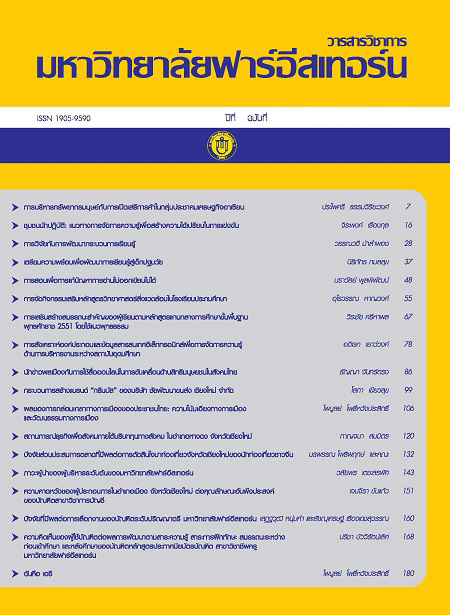ความเป็นอื่นในสังคมล้านนา: ภาพสะท้อนจากวรรณกรรมสู่พลวัตของความเป็นอื่น และการโต้กลับของกลุ่มชาติพันธุ์
Main Article Content
Abstract
ความเป็นอื่นในสังคมล้านนาเกิดจากปัจจัยต่าง ๆ ได้แก่ ปัจจัยด้านสังคมและวัฒนธรรม ปัจจัยด้านการเมือง และปัจจัยด้านเศรษฐกิจ ในขณะที่ลักษณะของความเป็นอื่นปรากฏในวรรณกรรมล้านนาที่มีเนื้อหาเกี่ยวกับตำนานชาติกำเนิด การเรียกชื่อกลุ่มชาติพันธุ์ เพศ การศึกษา และตำแหน่ง ฐานะ ชนชั้น อาชีพ และหากมองความเป็นอื่นในกรอบของเวลาจะพบว่าวรรณกรรมล้านนามีพลวัตด้านรูปแบบ เนื้อหา และการใช้ภาษา นอกจากนี้ยังมีประเด็นเรื่องของการโต้กลับของกลุ่มชาติพันธุ์ที่ถูกสร้างให้เป็นคนอื่นที่กระทำออกมาในรูปแบบที่สังคมส่วนใหญ่คาดหวังและยอมรับ ไม่ว่าจะเป็นการเข้ารับการศึกษาในระดับปริญญาหรือการเปิดเผยตัวตนเพื่อแสดงให้จุดยืนและหาพื้นที่ให้กับกลุ่มชาติพันธุ์ของตน ซึ่งเป็นการลดช่องว่างของการกีดกันทางชาติพันธุ์
There are three causes influencing the otherness in Lanna society; culture, politics and economy. In Lanna literature; however, the otherness is found in the literature concerning the myth of origin, name of ethnic groups, genders, educational systems, social status and careers of Lanna people. Moreover, the dynamic of literature in terms of language style, contents and language uses has been promoting the otherness in Lanna society from time to time. Reaction of the ethnic groups to the otherness given by the outsiders of their groups is expressed under the social norms such as enrolling to be students in universities, excepting their otherness to the public. These behaviors could narrow the gap of ethnic exclusion between them and the others in Lanna society.
Article Details
1. Any views and comments in the Journal of Social Innovation and Lifelong Learning are the authors’ views. The editorial staff have not to agree with those views and it is not considered as the editorial’s responsibility.
2. The responsibility of content and draft check of each article belongs to each author. In case, there is any lawsuit about copyright infringement. It is considered as the authors’ sole responsibility.
3. The article copyright belonging to the authors and The Far Eastern University are copyrighted legally. Republication must be received direct permission from the authors and The Far Eastern University in written form.

